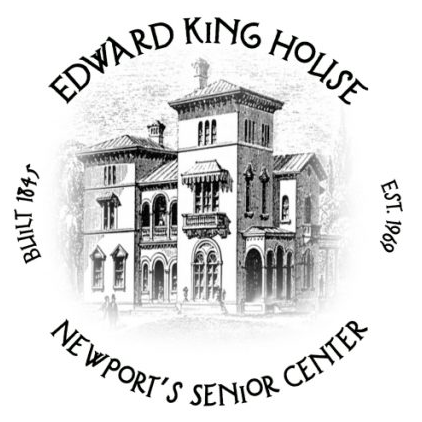Below is a list of free online offerings to keep your brain engaged while we are currently practicing social distancing. Enjoy!
EDX Learning
edX is the trusted platform for education and learning. Founded by Harvard and MIT, edX is home to more than 20 million learners, the majority of top-ranked universities in the world and industry-leading companies. As a global nonprofit, edX is transforming traditional education, removing the barriers of cost, location and access. Fulfilling the demand for people to learn on their own terms, edX is reimagining the possibilities of education, providing the highest-quality, stackable learning experiences including the groundbreaking MicroMasters® programs. Supporting learners at every stage, whether entering the job market, changing fields, seeking a promotion or exploring new interests, edX delivers courses for curious minds on topics ranging from data and computer science to leadership and communications. edX is where you go to learn.
YouTube.
The rapidly expanding default site for user-generated video now includes an education “channel” called YouTube EDU, with content from top universities and other institutions.
Videolectures.Net.
The site offers video lectures presented by distinguished scholars and scientists at conferences, seminars, workshops and the like. A project of the Jožef Stefan Institute in Slovenia, it has a decidedly international feel.
WonderHowTo.
Curators scour more than 1,700 websites and hand-pick instructional videos — from how to live longer (with University of Cambridge researcher Aubrey de Grey) to teaching your dog to roll over and play dead.
Howcast.
Its videos run the gamut from “How to Look Great in Photographs” to “How to Jump-Start Your Car.” Make your own how-to shorts in Howcast’s Emerging Filmmakers Program.
Videojug. This British entry features thousands of “how to” and “ask the expert” videos on a seemingly endless array of topics.
TEDTalks.
Since 1984, the annual conference that goes by the acronym TED (Technology, Entertainment, Design) has brought together some of the world’s top thinkers and doers and challenged them to give the talk of their lives in 18 minutes or less. This site aggregates the best of those, including Australian science writer Margaret Wertheim’s presentation about the beautiful mathematical links among coral, crochet and hyperbolic geometry.
Nobel Prize winners.
The online home of the Nobel Prizes is packed with interviews with and lectures by some of the world’s smartest people. There’s an interview, for example, with Italian neurologist Rita Levi-Montalcini, the first Nobel laureate to reach the age of 100. (She and a colleague won the 1986 Nobel Prize in physiology or medicine for their discovery of nerve growth factor.) In it, Levi-Montalcini talks about why this latest period of her life has been the best.
Forum National Network.
A consortium of public television and radio stations offers live and on-demand lectures by some of the world’s foremost scholars, authors, artists, scientists, policymakers and community leaders. Recent lecture webcasts included Harvard sociologist Sara Lawrence-Lightfoot discussing her new book, The Third Chapter: Passion, Risk, and Adventure in the 25 Years After 50. The best starting point for accessing all the multimedia content is through the website of one of its members, the Boston-based WGBH Forum Network.
Big Ideas.
This site, courtesy of TVO, Canada’s largest educational broadcaster, presents lectures on a variety of thought-provoking topics that range across politics, culture, economics, art, history, science and other fields. There’s even a “Best Lecturer Competition.”
Health.
Three trustworthy stops: WebMD’s Videos A-Z library, which has thousands of videos, catalogued by topic; HealthCentral.com’s Video Library; and the University of Maryland Medical Center’s Audio/Video Library, which includes interviews with UMMC experts, patient success stories and surgical webcasts.
Languages. The BBC offers audio and video language courses for beginners and intermediates in more than two dozen languages — French, German, Japanese … even Urdu.
Cooking.
Tempting sites: “Around the World in 80 Dishes” is a series of video-based cooking classes at Epicurious.com; the Culinary Institute of America, the famous school for chefs in Hyde Park, N.Y., offers classes on its YouTube network and its podcasts on iTunes; the Food Network, allrecipes.com and the Williams-Sonoma Video Library have lots more recipes and how-to videos.
Literature.
Librivox
LibriVox’s goal is to make all books in the public domain available as free audiobooks. Volunteers record the books, chapter by chapter, and release the audio files back onto the net.
Jazz profiles.
Take the iTrain to the archive of NPR’s Jazz Profiles, a documentary series hosted by singer Nancy Wilson. You can listen to the shows as podcasts, read profiles of the performers featured in the series and download the playlists for each show.
Finding Your Ancestors.
The Mormon Church is well known for its repository of genealogy records, so it makes sense that Brigham Young University would offer online courses in how to research your family history.
History.
The online counterpart of television’s History Channel, History.com has a video library well worth checking out.
